Childhood and Growing Up - Early Years
Welcome to next stage of your Life Journey: Childhood. The stage from giving birth to becoming a teenager and onto adulthood can be a bumpy road and there are many twists and turns along the way.
As parents we are on watch for 20 years and during this time we are expected to think on our feet, run and chew gum at the same time, have eyes in the back of your head, and that’s just before lunch. Since the 90s this has increased further as many young adults are maturing more slowly and staying at home later into their twenties.
In this modern world this is made even harder because in many family households both parents work full time. Juggling work commitments, bringing up children and working full time is a major strain on both parents and something usually has to give.
Here are some intitla thoughts about early years. GO!
Here are some facts and stats about ealy years. GO!
This section explains about the first year of your baby’s life. GO!
This section explains about a baby’s physical development. GO!
See how babies hear and see. GO!
This section describes what happens to the foetus in the womb. GO!
See what the little ones get up to! GO!
See about babies feeding and sleeping GO!
This section explores the financial aspects of starting a family. GO!
What you are as a parent is soon reflected in your children GO!
It’s important to teach kids right from wrong – they don’t know. GO!
Kids will always test the boundaries GO!
What’s the balance between freedom of choice or discipline GO!
Is your child a genius? GO!
Many parents and children don’t understand emotional intelligence GO!
Is your child the youngest or the oldest in the class? GO!
Is it a good idea to wrap your kids in cotton wool? GO!
We have a testimonial GO!
What next? GO!
Some stuff you might like? GO!
Some Initial Thoughts
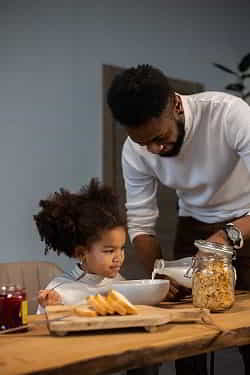
Welcome to parenthood!
When you hear from the kitchen – “there’s nothing to eat” right after you spent your week's wages at the supermarket.
What children eat and drink during their early years can affect their health for many years to come. General eating habits are formed in the first few years of life, so it is important that we encourage our children to eat nutritious food.
Children need to eat more as they grow. As a guide, your child should eat these foods every day: 2 - 3 years: 1 serving of fruit; 2½ servings of vegetables; 4 servings of grains; 1 serving of meat/poultry; 1½ servings of dairy.
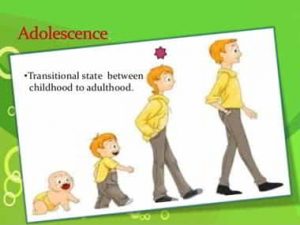
Why are so many young adults suffering from anxiety and stress?
It's quite simple really but very individual. It's nature or nurture or both. If a person has a nervous disposition and their environment is the same, then you will see the acute condition. But if the nature is strong and the nurture is too protective (parents keep their child over-protected from society) then when they get into the adult workplace, they have a meltdown.
Facts About conception, maternity and birth
In 2021 200,000 children under 5 will attend first school unable to read. ONS
9 out of 10 children under 11 cannot swim a 100m
of 16-24 year olds 2019 identify as LGBT
were written in 2019/20 for mental health issues
Of students drink alcohol every day
of 18-24 year early pregnant women are obese :AYPH
of the 16-24 age group reporting self-harm was 9%
76.3 million antidepressant items were prescribed in 2019/20, a 23.3% increase
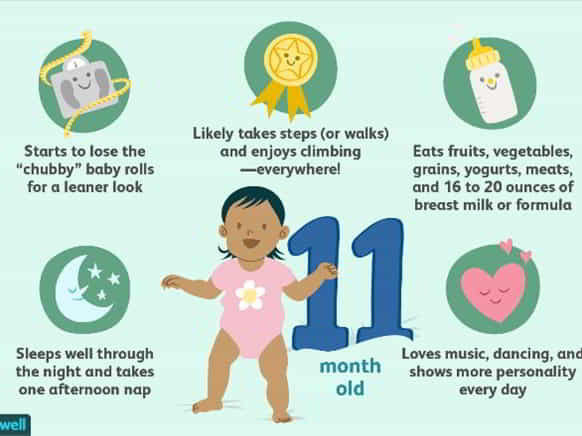
The first 12 months
What a wonderful period this is for parents - watching their child learn to crawl, walk and talk. This is the second stage of making sure that their environment is sound. Can you imagine you have this little bundle of flesh and bones with a grey matter, eyes and ears and nose. What parents do not always take into consideration is that this combination of senses is like a permanent video recorder. Watching, listening, observing and recording information and data for later usage.
Parents think these babies don’t understand or cannot comprehend but they can record and when the brain is more developed, they can re-evaluate that recording especially if its traumatic.
The world can be a big and scary place for a new baby. They don’t know you’re there to comfort, feed and care for them.
Your baby can’t understand that they’re comfortable because they’re full and safe, or uncomfortable because they’re afraid or hungry.
From your smell and voice, your baby will quickly learn to recognise you’re the person who comforts and feeds them most, but not that you’re their parent.
However, even from birth, your baby will start to communicate with signals when they’re tired and hungry, or awake and alert.
Your baby is learning all the time. Your job is to help them know that the world is a friendly place, where their needs will be met, so they can learn to feel safe and loved.

DNA – It’s all in the DNA - or is it?
For your new baby, everything is new and scary at first, even a nappy change.
They don’t know that they're a person.
They don’t know who comes when they cry.
They feel happy when feeding, but don’t know what ‘happy’ is.
They cry when they’re hungry or tired, but don’t understand you are there to care for them.
Crying
Babies under 3 months often cry a lot, especially in the late afternoon or evening.
We’re not sure, but this crying, often called colic, might be partly caused by your baby simply being overwhelmed by everything that’s happening, both inside their body and outside.
‘Jiggling’ is not a good way to settle your baby. It can be very scary or even painful, even if they stop crying. It is important to never shake a baby.
More on crying
Newborn babies do not cry ‘for attention’ or to punish their parents.
In their first 3 months, a new baby cannot decide to cry. They’ll cry because of something they’re feeling or that’s happening. They don’t understand what is happening and that you might be able to help them feel better.
Your baby likes the full feeling they have after a feed, when they hear your soothing voice, or when they’re being cuddled.
They don’t like feeling hungry or frightened.
But they can’t understand that feelings are caused by a full tummy or hunger.
Why does my baby cry when I’m upset?
Because babies feel but aren’t yet able to think, your baby will pick up your feelings. They’ll be calm when you’re calm and unhappy if you are unhappy.
If you feel upset, they’ll feel upset too, though they won’t know why they’re feeling that way.
So, when you’re tired and frazzled, your baby may be hard to settle, making things seem even worse!
Each baby is different
It really is true. Each baby has a different personality. They may be easy going and placid, or shy and worried, or easily upset.
You’ll get to know this over the next few months. Your baby is different and will grow and develop in the way that is right for them.
Your face and voice
The human face is the first and most important shape that your baby learns.
The sounds of human voices are also important, even though your baby doesn’t understand them.
Your baby is interested in you – especially your voice and your face.
Looking into someone’s eyes is a vital part of forming close and loving relationships. Show your baby your face and gently talk to your baby right from the start.
Don’t feel rejected if your baby sometimes turns away. Tiny babies often get tired when they interact – they just need a rest.
Babies need to feel safe – that you’re looking after them. They often begin to smile at a familiar face and look at you carefully by 4 to 6 weeks.
When it’s all too much
Since your baby doesn’t understand what’s happening around them, your baby can become upset if there’s too much to see or do.
They can easily feel overwhelmed by sounds, colours, shapes and touch. Sometimes it’s just too much!
Loud noises may frighten your baby in the first months, but you can soothe them by talking in a gentle voice, humming, playing lullabies, or playing music they heard during pregnancy.
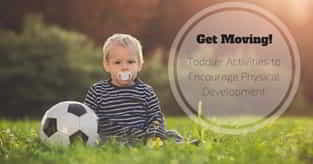
Physical Development
Still developing
Although babies are ready to live and grow outside the womb, parts of their bodies are still immature.
Your new baby’s body is all brand new and never been used before.
It will take the first 3 months to get your baby’s digestive system running smoothly. You can tell by your baby’s face when they’re focused on whatever’s going on inside their tummy.
Moving
Your new baby will move their body while they’re awake, but your baby doesn’t know how to make each part of their body move, or even that all the bits belong to them.
In the first 8 weeks, your baby has no control over their movements; the movements are an involuntary reflex. Sucking, grasping (holding something tight in the hand), and startling (‘jumping’ when there is a loud noise or when they’re suddenly moved) are all reflexes.
From about 8 weeks, your baby will begin to watch their hands and feet wave in the air, and to wave their fist towards your face or something they want. Your baby’s starting to get the idea that they have a body that moves, feels and has skin all around it, and that they have some control over what it does. Your baby will start to work out how to lift their head when lying on their tummy, and kick their legs.
Safety
Even though your baby can’t roll, they can wriggle and kick, so never leave them alone on a high surface such as your bed or a change table.
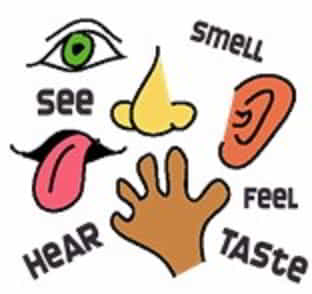
Hearing and seeing
Newborn babies can hear – your baby has been hearing noises from well before they were born.
They can see, but only see close things clearly.
In the first 3 months your baby will be attracted by faces, bright lights and colours, stripes, dots and patterns, but not understand what they’re seeing.
They’ll first recognise that eyes, nose and mouth make a face.
Then your baby will begin to recognise particular faces and other things like their teddy. Hang pictures of faces and simple toys above the cot to give your baby practice at looking and learning.

Speech and Language
Babies show how they feel through their face, voice and body movements.
Crying is the main way your newborn baby can let you know something is wrong, and soon they may start having different cries for different things – hunger, pain, wet, cold, fear and loneliness.
You will begin to recognise these different cries in the first few weeks. Babies have no understanding about time so, for them; all their needs are immediate and urgent.
Try to respond to your baby as quickly as you can so they begin to understand you’ll be there when they call out for you. This develops the feeling of security, which is very important.
By 7 or 8 weeks, your baby will be making cooing and simple sounds. They’ll also listen to what you say, then make noises back as they ‘talk’ to you.
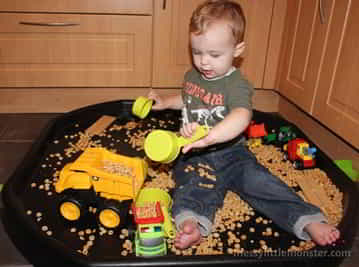
Activities
Make a face mobile and hang it above their cot, facing them.
Stroke different parts of their body to see how they like to be touched.
Speak to them gently and use their name.
Play music.
Sing to your baby.
Cuddle your baby a lot.
Let them look at your face as you talk to your baby.
Copy their little gestures.
Gently rock them.

Feeding and sleeping
Babies need to feed throughout the night in the first few months. Most babies wake every 2 to 3 hours for a feed, and sleep a total of 12 to 20 hours each day – this is normal. Some babies will resettle when you just touch and soothe them – others may need a feed.
Do not leave your baby on their tummy when they sleep. Sleeping on the tummy increases the risk of Sudden Unexpected Death in Infancy.

Children learn from their parents and people around them
Parents often carry on their lives oblivious that kids are watching and listening. Not only watching but looking at body language and facial expressions.
If parents are shouting and arguing in front of children then this becomes learned behaviour. Parents hitting each other, swearing, stamping around are just role models for their kids and kids can often imitate what parents do.
Kids would never wash if a parent didn’t make them. Ever remember going to school and sitting next to stinky Smith; well guess what, sadly stinky Smith usually would have come from the stinky Smith residence where everyone in the street could smell them.
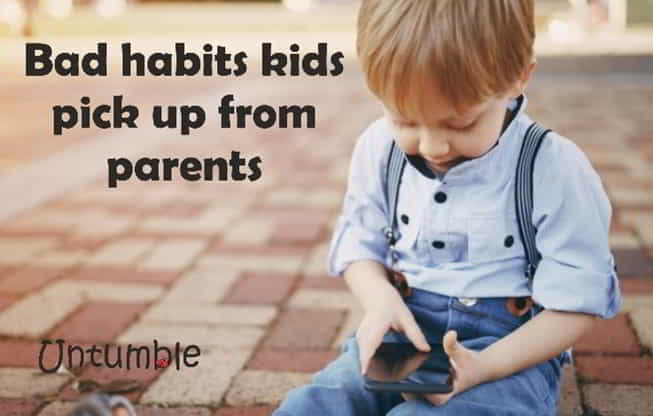
What you are as a parent is soon reflected in your children
One of our biggest responsibilities is to be a good example to our children. This is because children, especially during the first 5 years of life, imitate everything they see in adults.
Why do Children Imitate Adults?
For better or for worse, children imitate adults. Almost without us realizing it, their small eyes study and hone in on us, working in behaviours, copying gestures, and internalizing words, expressions, and even roles. We know that children will never be exact copies of their parents; the imprint we leave on them, however, is decisive.
This is something that has always been clear in the area of the psychology of development. Albert Bandura, for example, a recognized psychologist in the field of social learning, has written extensively on one of its key concepts, “modelling”. According to him, people learn by imitating the behaviours they see around them, those social models they grow up or interact with.
Click on any of the tabs on the right to see more information
Children don’t only imitate their parents. As we well know, they don’t simply experience isolated scenarios. Nowadays, they have more social stimulation than ever, and even “models” outside their own home or school. We also can’t forget television and those new technologies they use from a very early age.
Everything they see, hear, and happens around them influences them. We adults make up that vast theatre of characters that they imitate and that will influence their conduct and even their way of understanding the world.
We know that children imitate adults, but why do they do it? Developmental psychologist Moritz Daum from the University of Zurich pointed out something interesting. This almost instinctive behaviour in humans (and in other animals) serves for more than just learning: imitating also creates a sense of belonging, and it helps humans identify themselves as part of groups.
So, are children really like sponges with a tendency to imitate everything they see? Furthermore, at what age do they begin to notice what surrounds them to begin modelling after it? Let’s have a look.
When do children start imitating adults?
We know that mimicking begins shortly after birth. Some new-borns copy facial movements like sticking out their tongues. However, this process doesn’t reliably mature until they’re over a year old.
Babies that are six months old already understand intentional behaviour. What does that mean? Well, it means that, for example, when they see their mother or father get close to pick them up, they’ll feel good. They understand what things are nice and not nice about their daily routines. All of this forms a foundation for them to recognize patterns and behaviours, and to understand that, after certain actions, others take place.
Between 19 and 24 months, children begin to copy a lot of things they see in others. They imitate their parents, their older siblings, and those they can see on TV. They do it to learn, but also to be the same as others and to feel part of a social group.
When a child needs to learn something concrete, they’ll go to adults. This principle fits in with the proximate zone of development by Lev Vygotsky. In other words, they know that, with adequate support, they can achieve another level, a new phase of greater ability. But to do this, they need “expert models”: adults.
Some findings from a study at Yale University were very telling. Derek Lions, the author, showed that during a concrete period of their lives, children imitate adults excessively and mimetically. This “over-imitation” happens during the first five years. This means that they don’t have sophisticated criteria or thought processes to infer whether or not what those adults say and do is appropriate, useful, or moral.
All of these facts support our intuition. Children learn by observing everything in their surroundings, but they especially pay attention to their mothers and fathers. Being a good role model is a huge responsibility, and it might even be the most important one of all.
Parenting Habits That Could Keep Children From Succeeding In Life
Raising children requires good parenting techniques as well as avoiding bad habits. A positive body image help children develop socially. Quality time with kids also helps them in school. But just as important are avoiding mistakes that can curtail a child’s social, physical, emotional and intellectual development

Learning right from wrong
Children according to scientist study know right from wrong before they are two years old. Certainly by 5 and going to school they should know the basics of sharing, kindness, hitting, toilet etc.
Once your child starts school then the world begins to open up and your influence and control of what they see, hear and feel starts to disappears. Children are exposed to all sorts of messages, signals and influences. Parents need to be really on guard to watch for behaviour changes and address any unsociable situations arising.
Lessons learned before 5 set the standard for all the teen and adolescence years.
We talk here about the social environment but what about nurture. Well children who come from parents who were hot headed explosive characters are likely to have more difficulty dealing with right and wrong. Sadly, those parents also tend to dish out learning with a more aggressive and explosive way losing their tempers faster. It is important to remember the child is an offspring of its parents and the combined nature and character does play out in the child.
Psychology Today have an article on how children learn right from wrong.

Testing the boundaries
Children are also testing boundaries of behaviour and what they can and cannot get away with. Knowing not only where the boundaries are but what are the consequences for breaching boundaries.
This is one of the trickiest areas for parents because all parents manage boundaries differently based upon their own beliefs, personalities and characters. Some parents let their kids get away with blue murder as the saying goes whilst other run their house with a rod of iron. Well both are extremes and both are as bad as each other.
Parents are trainers, leaders, managers. Its their job to bring up a rounded child. Knowing what is acceptable and not should not be negotiable its about principle and morals.
How many parents call/shout to their children 5 times to get out of bed and get ready. The first shout is usually come on lovey get up its 7am. Second, is John/jane you’re going to be late come on get up. The Third is a slightly raised and come on get out of bed you need to have some cereal before school. Fourth time is JOHN/JANE get out of bed NOW you are going to make me late. And the fifth is I WON’T TELL YOU AGAIN, IF I HAVE TO COME UP THERE, I WILL KILL YOU. NOW GET UP.
So, where is the line? Well, the extreme woke parent would go upstairs and help them get up and dress them, slightly embarrassing if they are 15 and the military parent would go up after the 2 time and drown them in water. Who is right and wrong? Well, both, because its about teaching the child what good behaviour looks like and the potential rewards for good behaviour and the reverse of course.
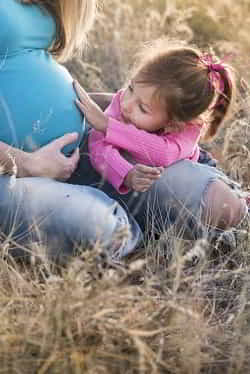
The balance between freedom of choice and discipline
When children are young, many modern parents seem to forego discipline, treating each child as a mini adult and allowing them to make their own decisions on everything. No consideration is given to the mental maturity of that child and whether they have the cerebral capabilities to make the choice. There is merit in allowing children to make a choice or make decisions, but this should be gradual and when a child has the mental maturity to understand the consequences of their decision making. Most children when asked what you want for dinner would always ask for junk food.
Should we say no because we as a mature person know the effects this could have, or do we just say yes, avoiding a problem now but knowing we are creating an issue for them in later life which they will have to solve.
A recent survey showed that in the 1950s, 60s and 70s children would come home from school and ask their mum what’s for dinner, and most mums would tell them. In the late 1980s, 90s and 00s this all changed; children were asked what they wanted. The argument is – which is right?
Well, they can both be right as long as the adult oversees the choice, it’s balanced and doesn’t end up making a rod for the parents back by cooking 3 separate meals every meal time. For example choice could be given to a child on specific days, it’s free choice and the rest of the time it’s set menus. An article from SmartParentAdvice shows how to discipline a child.
Believe it or not some parents even offer the choice of personal washing as a choice rather than discipline. According to parents.com children over 8 should be washing each day. In this graph from the atlantic.com less than 60% of UK adults shower once a day.

Is your child gifted?
What to look for if your child is a budding Chopin, Brunel, Curie or Williams.
I should add this is not about identifying another Einstein its about identifying your child’s strengths weaknesses and traits; Are they going to be artistic, physical, mental skills. Observing the things that come really naturally to them and things they find hard to do and then spending time developing those skills or helping them to work on the weaker areas.
Click on the picture to see a video on how to identify your child’s differences and characteristics
Parents and grandparents should look for the signs of budding talents or issues. This could be from DNA from past descendants or parents – either way it can be positive and / or negative. It does not have to be obvious, like a child’s ability to play the piano at 4, it could be something as simple as their learning style. Some kids have low spans of attention and are more sociable at school and can get distracted, which means parents need to support their child to keep up with those boring times tables. Whereas some children will happily sit and play with Lego for hours making things. Traits and tendencies and styles will develop as the child grows and it’s important to nurture or counter nurture these to make sure your child grows well rounded.
You often see parents forcing their children to play sports because the parents love sport. Kids who are average at a sport are often pushed by their parents who want them to fulfil the parent’s ambition not their own. Parents will often push children into doing things because other children to it, or other parents talk about their children’s activities or talents and it turns into a competitive situation. Remember what we said about a job that you love is not like working at all. The same applies to children, if they are talented at something foster that talent but don’t force them.
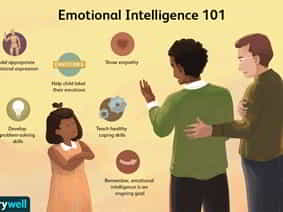
Emotional Intelligence
Many parents and children don’t understand emotional intelligence. Many parents never pay attention to when to change their language, tone and approach. As children grow what you often see is they behave like a child, and then one day you can hold what seems to be a adult conversation which lasts 5 minutes. This surprises the adult who then assumes that as that was grown up they can start treating them as older, when in actual fact it was a snap shot of maturity. Within the same day the child with whom you just had the adult conversation does something below their age level and the parent says ‘grow up’. Children have periods when they concentrate and the subject matter is clear, and they can hold quite adult thoughts, but that is not an indication it will last.
Twitter is a great place to see emotional intelligence with people often reacting to comments in a childish way. People feel hurt by others comments and feel compelled to reply with often an aggressive put down and personal attack. Our parents and grandparents would say to us as children; sticks and stones may break my bones but calling names won’t hurt you. It seems today that calling names is now the same as sticks and stones, and people use words such as ‘outraged’ or ‘angry’ and demand apologies for perceived slights or insults.
FirstCry Parenting gives 15 signs of an intelligent baby.
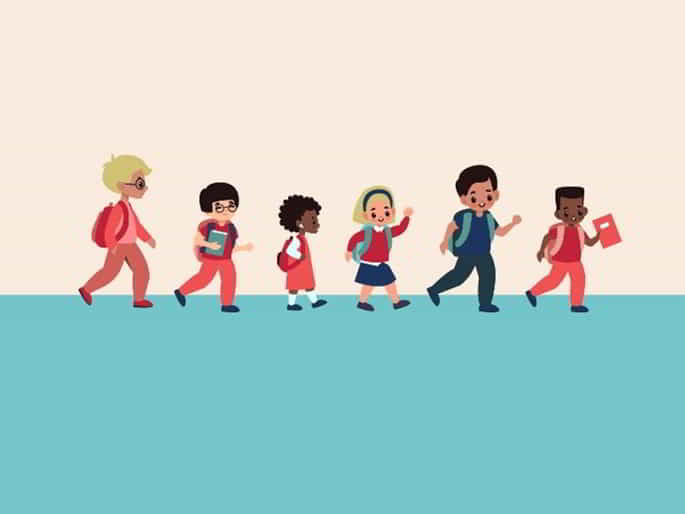
Is your child the youngest or oldest in the class?
What to do to compensate
Often parents never think much about this but it can have a big impact on a child’s development and happiness at school. Typically, a child starts school in September of a year at 5 but the child may have been born late and could be nearer 6. Likewise, children could be just 5. So, there could be a nearly a year’s difference between the two. The school will try their best to teach middle ground but this equally could fail to meet the needs of either child. As parents you need to ask about the learning age and what the average of the class is. Discuss it with the teachers if you think your child is getting frustrated or disadvantaged.
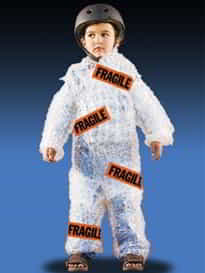
Wrapping your kids in cotton wool
Everyone is aware of the term wrapping someone in cotton wool, well let’s say it’s a balance. As previously mentioned about the extreme parent behaviour - woke verses military this key point is the same. Parents have to decide and which side or middle road they wish to develop but both extremes have consequences. From a mental health perspective, the woke liberals in society are banning; conkers, hopscotch, hide and seek, contact sport such as rugby, whilst also attempting to eliminate name calling at school. Opinions are divided but outcome is not. There is clear evidence the child for example with ginger hair protected at school from being called carrot top will be in for a shock when they enter the workplace and they are called worse things extensively.
Click on any of the tabs on the right to see more information
Many young adults are taking medication because they cannot cope with the harsh reality of adult life and all the cruelty It brings. Stick and stones may break my bones but calling names won’t hurt me is an old saying and one that most parents would sit down and say to their child and give them confidence to bounce back and stand up to bully’s
We live in a cruel world. Over protecting a child is a dis-service and will result in life issues when they are a young adult in the workplace.
1) It teaches kids to make decisions for themselves
If you never expose your children to risk, how will they learn to assess danger for themselves? If a toddler can trip or fall over an obstacle then they probably will. But next time in that situation they’ll negotiate a way over or around it or give it a miss. If you allow and encourage your child to assess how risky something is for themselves, you help them learn to make sensible judgements.
2) It helps develop their confidence
Making decisions, taking responsibility for your own actions and dealing with the consequences of those actions breeds confidence. Who doesn’t want confident children?
3) It encourages independence
Do you really want a teenager who can’t cross the road without you holding their hand? If you don’t let kids experience the world for themselves, it’s going to be terrifying later, for both of you! Teach them the ropes of any activity, tame or extreme, then let them get on with it. You’ll thank yourself in the end when you have independent kids who realise how much freedom you gave them compared to their friends.
4) Kids need fresh air and freedom to grow
Research suggests we are breeding a nation of Nintendo kids, more familiar with the screen than the sky. Is this what you really want? What happened to fresh air and the freedom to wander? Let them out on their own occasionally. Boot them out if you have to. They will come back again. When they’re hungry.
5) It helps them make and live with their own choices
Imagine a life without choice. If you are cotton wool parenting then you are taking away their power and ability to make choices for themselves. You might as well lock them in their bedrooms until they reach 18. It’s not necessary to dive in and sort out every problem for them. A little well placed ‘benign neglect’ can require kids to make choices and deal with things for themselves.
6) It shows them you believe in them
If your children feel you believe in them, they will be happier, more go getting people. If your children don’t feel you believe in them, what do they learn?
7) It gives you and them more freedom
Remember how great it felt when your parents sent you off out to play in the streets or picnic in the park, on your own? Why not offer some of that joy and freedom to your kids? Give them a watch, a phone and a time to come home. The first outing is the hardest, and then it gets easier.
8) Giving responsibility teaches responsibility
Responsible kids become responsible adults and responsible parents. The way you treat your kids shapes the way they will treat theirs. If you create cotton wool kids you may get generations of cotton wool grandchildren too.
9) It helps develop resilience
Children are resilient. They bounce when they fall out of bed. Scrapes, scratches and grazes heal. Why not send them up a tree or off to scale a mountain. Let them discover their resilience.
10) It provides the space we all need to explore, discover, learn and grow
Pessimism breeds Eeyores. Stop thinking negatively. Let them think they can have the moon on a stick and see where that takes them. They may settle for just the moon or just the stick or think both are ‘so last year.’ But at least you’ve shown them the possibilities. And life, in the end, is all about seeing the possibilities.
For visitors
Why don't you join us?
You can register to join us as a member, when you’ll be able to download our stuff and comment, or as a YouDriver when you’ll also be able to check your health and set up your own action plans to make some improvements. If you’ve already registered, sign in below. Or let us know what you think.
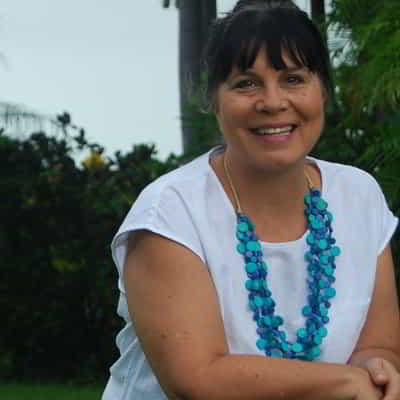
Next Steps
It doesn’t matter what stage you’re at – it’s important to be the best you can be. At the end of the day it’s about taking personal responsibility – You Drive!
It’s really your choice. You can find out more information about the subject, or see other institutions that can help by going to Support. There you will find organisations, training, coaching, self-help courses and other items to support your personal change. We have also started developing a panel of experts to provide info, advice, help and support.
Get Support
There are times when you need some help to meet your aims – a helping hand. That might be an organisation that can provide you with some help, some specialised information, a particular book or tool to help, or just getting some background reading material.
We have a lot of items which appear on our Drives and other pages, which you can go to by clicking on the picture or link. Some contain affiliate links and we may receive a tiny commission for purchases made through these links.
If you know of anything which could help you or our other visitors then please click the button on the right, which will take you to a Contacts page where you contact us.
Experts
We are compiling a list of experts who can provide advice, help or specialised services. You will be able to access these experts from anywhere on our site you see our ‘Experts’ symbol. Click the green E to see what our Experts list will look like, with a couple of imaginary ‘experts’ added!
More Information
Scroll down to see more information on this Drive.
If you register you can also download reports, white papers, quizzes and other collaterals. We will never ask you for any financial information, and we’ll only send you the information you want. You can register for our site either above or in the footer below. You can provide your own questions and experiences in order to help other members. We only moderate for spam and inflammatory language – see our moderation policy.
If you’ve found this interesting, then please share it on social media. Choose your network!
The New Dad’s Survival Guide:
By Rob Kemp & First-Time Parent By Lucy Atkins 2 Books Collection Set
As a health journalist and mother-of-three, Lucy Atkins is familiar with both the medical aspects of childbirth and baby development, and the reality of day-to-day life as an exhausted first-time mum or dad. In her feisty, humorous style, she begins with that first mind-blowing day and addresses the issues unique to the first-time parent who stares at their newborn and thinks “Where are the instructions?”
New baby The truth!:
Fun inclusive book for new parents
Having a baby is the most amazing thing but you can’t imagine the ups and downs until you’ve been there. This A-Z collection of highs and lows is beautifully illustrated with the most adorable, inclusive baby photographs. If this is your first time, consider it a guide for what to expect and reassurance that the roller coaster is normal. If you’ve been on this journey a while, I hope you’ll settle down, grab a cuppa and chuckle along with me as you remember your own experiences!
The Gentle Discipline Book:
How to raise co-operative, polite and helpful children
In The Gentle Discipline Book, Sarah Ockwell-Smith debunks many commonly held beliefs about punishment and motivation, and provides an alternative approach that will empower you to discipline your child in an effective way and with respect.
A Parent’s Guide to Gifted Children
Raising a gifted child is both a joy and a challenge, yet parents of gifted children have few resources for reliable parenting information.
The Collapse of Parenting:
How We Hurt Our Kids When We Treat Them Like Grown-Ups
Auhor Leonard Sax argues that rising levels of obesity, depression, and anxiety among young people can be traced to parents abdicating their authority









